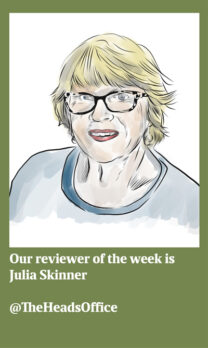Compassion, leading change, meeting communities’ needs, balance and flexibility are Julia Skinner’s top picks of the education topics this week
@vawells1
This post from Vikki Wells is so timely with the negative media coverage on schools from a couple of prominent people from the past of English education. The work that is being done by schools is clearly laid out here and it emphasizes the very different ways leaders are making sure their children are safe, being fed and learning. The role of governors has also changed and many have stepped up to the plate to support with the deployment of new technologies as well as the safeguarding of children. The main thrust of the piece is to lay out how the learning of the pandemic should be carried into the future running of schools with compassion at the core. It has some useful links as well as searching questions for governors to ask themselves.
Five ways to help children heal when schools reopen
@marymered
Continuing on the theme of post-pandemic education, this piece reflects on the role schools must play to help communities recover from trauma when they reopen. Although Mary Meredith refers to those children severely traumatised by their recent experience, her article actually reaches out to whole-school action for all children. It recognises that all pupils will have been affected, and that we cannot assume that they will not be able to come back to school as if it has just been a longer break. The suggestions she makes are pertinent to the work of governors because they will need to drive this ‘transformation through trauma’, while being mindful of their own and school staff’s resilience.
The world is a tough place at the moment
@DamsonEd
Each of our experiences during lockdown will be different. There will be similarities, such as how often you can leave your house, etc. but how we cope with the restrictions that have been placed on us will vary. In this piece, the differences that may not be so evident are explored. We know who our vulnerable children are and we continue to do all we can to ensure they are being adequately cared for during this time, but the decisions we make for them will need careful thought. We need to start from where parents and carers are, and not where we think they should be. Boards need to give thought to how their well-intentioned decisions might be received and be prepared to adapt them.
@toriaclaire
Getting the best from others is a position of responsibility, and this post rang so many bells for me. I was taken back to my own secondary career and a certain needlework teacher. For the author, it was a comment from an art teacher. Rather than praising the work and boosting a budding artist’s confidence, it was slated and had a long-lasting effect. How many of us in education do something similar? Not so extreme but enough to set thoughts of inadequacy and failure. Governors can do this with their school teams, especially if they get the balance wrong between friendliness and criticism in their role as a ‘critical friend’. It’s easy to forget to be constructive and compassionate, especially when things are hard. My needlework teacher had a problem with my left-handedness as she was unable to demonstrate for me. I’ve been able to adapt, but it has stayed with me for decades.
@Peter_Swabey
Of course, driving change, adapting to our communities’ needs and keeping our own balance throughout will be a challenge in a period when governing bodies are unlikely to go back to the comfort zone of business as usual. This practical piece written for governance professionals looks at what changed working conditions have meant to boards already. Governors are used to attending meetings and sitting around a table. That is their space, and virtual meetings, whilst useful, are not the same. In this post, the differences are set out and the pitfalls highlighted, but there is also a good selection of guidance on how to get the best results in our new circumstances.













Your thoughts